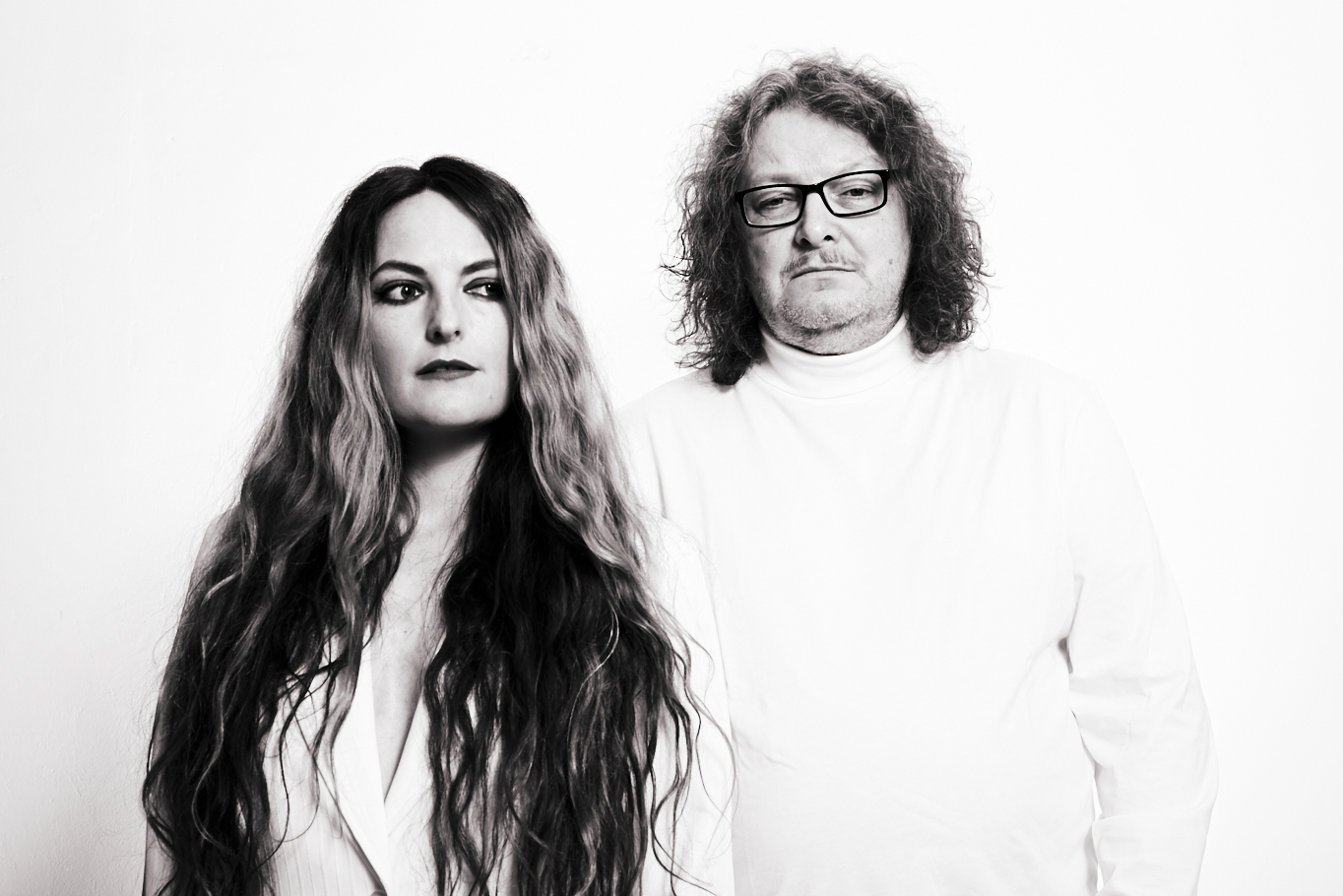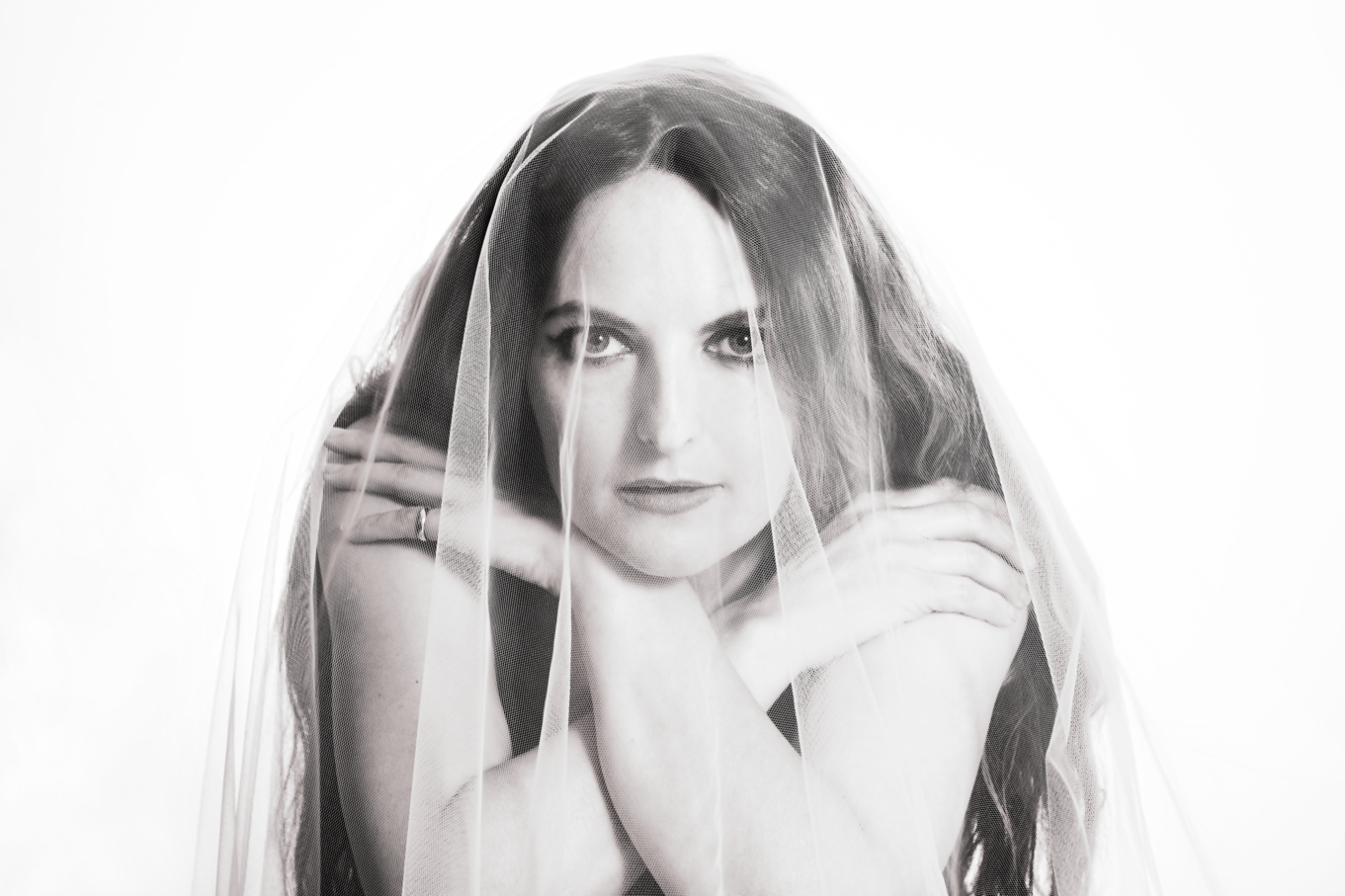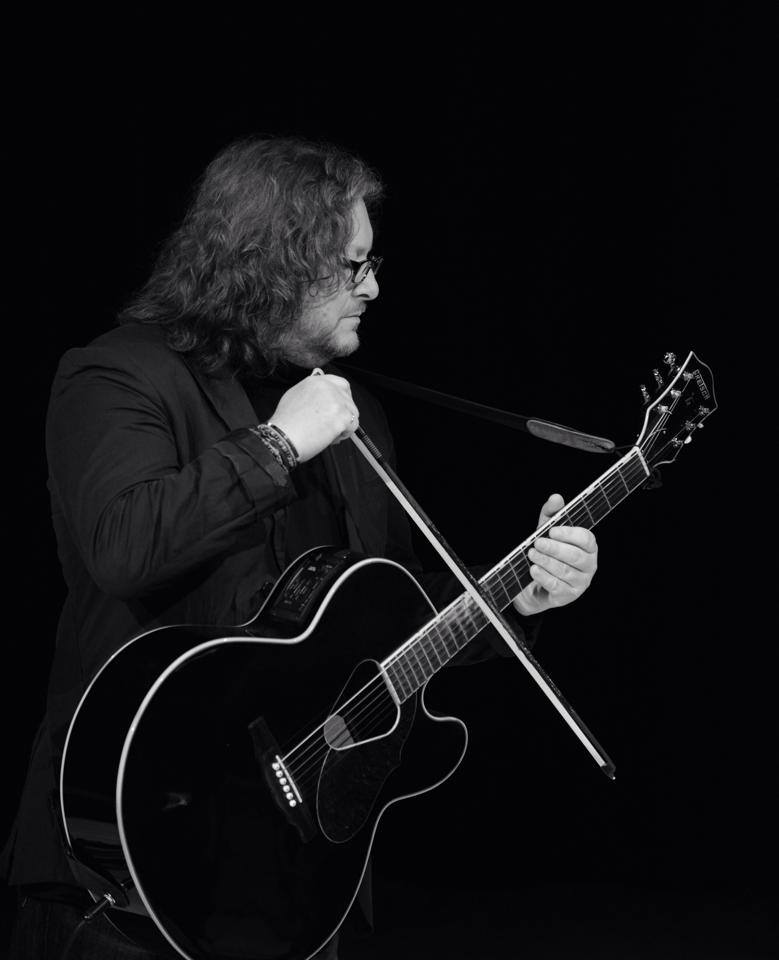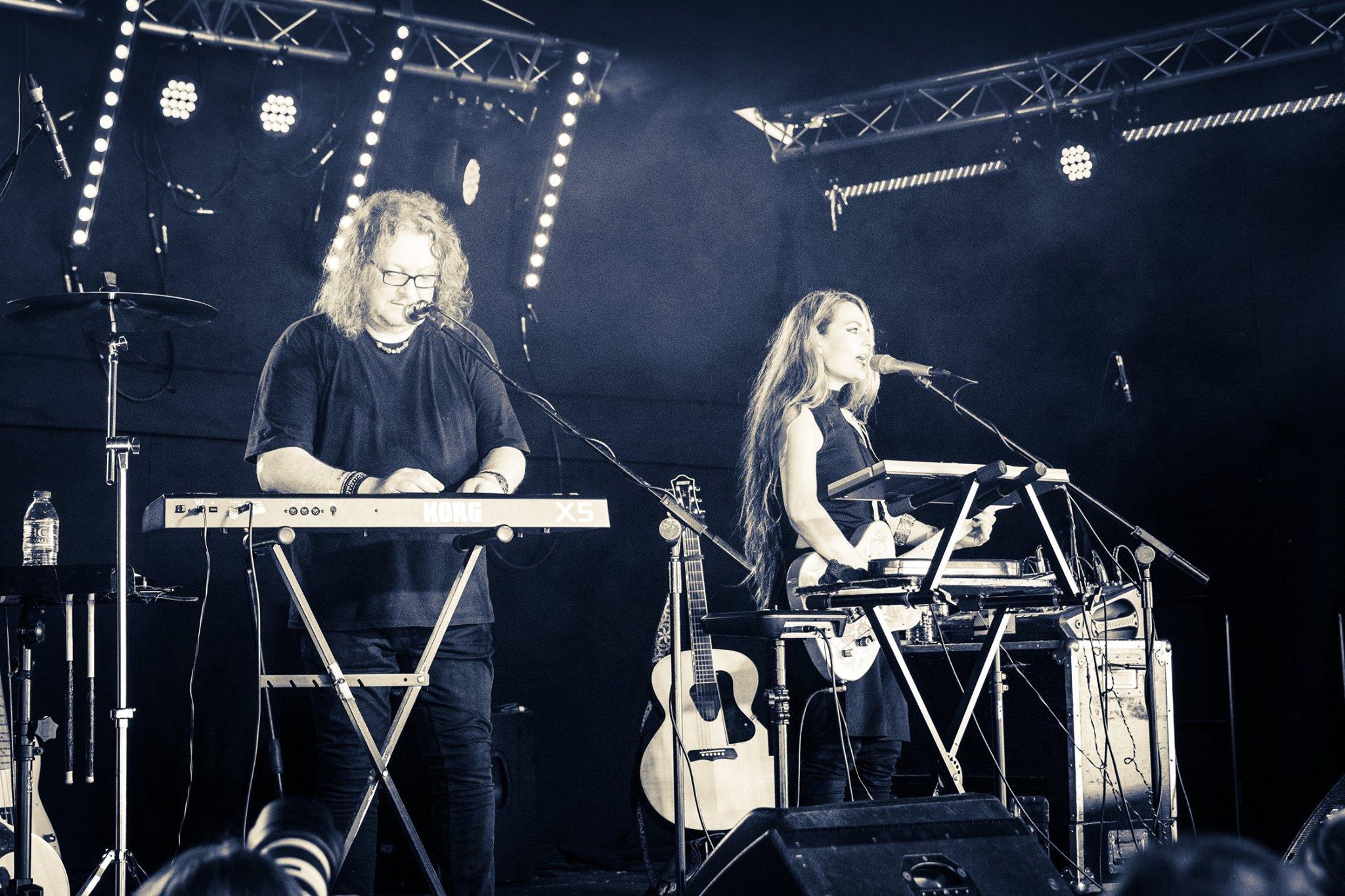The Blackheart Orchestra’s album Mesmeranto is one of the most exciting releases of late 2019. Chrissy Mostyn and Rick Pilkington talk to Jason Barnard about their journey producing this moving, brilliantly uncategorisable record.
Congratulations on the success of Mesmeranto. In its sleeve notes you quote Alan Watts on birth and death and mention the sad passing of Chrissy’s mother. Would you say it is a concept album about life and death?
C : Thank you. We actually never set out to write a concept album but I guess within our lives we have themes and stories that run which can’t help but impact what we write about. The album definitely deals with life and death, as you say I was facing the end of my beautiful mum’s journey it threw up so many existential questions.
R : Because we write one song at a time rather than trying to write ‘the album’ en bloc it’s only natural that the songs each have their own personality and story that reflects how we were feeling at that particular time. Yes, it’s an album about life. Yes it’s an album about death. And it’s an album about some of the glorious bits in between too. Each song is a page in the diary of our lives. Chrissy is great at remembering exactly when, where and how each song was written and often when she reminds me of the details it all comes flooding back quite emotionally and the song becomes almost three dimensional again and super real.
Are there any particular tracks that you feel best encapsulate the album’s themes?
C : I think Ennikur for sure, this was written in a church in Lubeck before a concert and I remember crying over the song for days as I knew it was a farewell song, almost a lullaby for the leaving. I think the cycle of emotions that we feel from sadness, fear, anger to joy have all been visited throughout the albums journey as with loss also come gratitude for the having too.
R: It’s Another Lifetime for me. I adore playing that song live but I’m almost scared of it because it so draws me into itself. Live we end the first set with it and often I find it quite difficult to keep my emotions together and sometimes dash off stage hoping that no-one has noticed any tears. In the studio though I just thought this is about the greatness of dying and then entering heaven…I’m going to go maximum here – get the orchestra in!
Did you sequence the songs in a particular way?
C: Yes we did, I think that it’s incredibly important, obviously with streaming etc we know that people don’t always consume music in that way but as a whole body of work I think the journey is so important. We already knew that Ennikur would be the introductory track and Another Lifetime the final track as it seems to complete the circle.
R: Chrissy always has the job of sequencing our albums and I would never think to touch her decision, she always gets it right. My job is to name the albums. Mesmeranto was named in a car park while Chrissy was in Morrisons doing the shopping.
What was the writing and recording process?
C: Writing is always a very organic process for us, we never get together for writing days or anything like that we wait for the songs to just arrive when they do and we capture them pretty quickly. Often in my kitchen and often in soundchecks whilst on tour.
The recording process again is pretty flowing, Rick is an incredible producer and we work alongside producer / engineer Glenn Phillips who has an incredible talent for helping our visions come to life.
R: I love the recording process. I love extending the songs with harmony and orchestration. It’s like painting with sound. The songs have usually been bedded-in and played live before we get them into the studio so we start with the live concept and build on that adding layer upon layer of musical paint until the picture is complete. The live version of the songs always remains the definitive version for me – that’s the naked version. The album is the songs with their posh clothes on.
How would you say Mesmeranto compares to your previous records?
C: As with all the records I would say it is an evolution from the last. I would definitely say it’s our most grown-up and cohesive collection of songs. I think we felt braver in the studio too, to experiment with sounds but also with the silence which is just as important as the sounds we place into it. We felt like we had no rules and no specific genre to please which is incredibly freeing, but somehow it seemed to thread itself together.
R: I think it’s the album I’m most proud of and the album which represents us the best. All our albums have been a painting or photograph of us at a certain period in our time, but Mesmeranto is an x-ray.
People struggle to pigeonhole your sound, what are your formative influences?
C: So do we! Which in a way is a great thing, but in another way a little tricky as the industry does like its labels. Between the two of us we have such a vast array of influences. I love lots of classical music in particular minimalist composers such as Ludovico Einaudi, Dustin O’Hallaron and Olafur Arnold’s, but also Phillip Glass and Steve Reich. I also have a deep love for experimental rock bands / artists such as Sigur Ros, Daughter, Portishead, Elbow, Bat For Lashes, Soap and Skin. I also adore some folk, pop and electronica so I guess it all gets thrown into the blend.
R: I could say Jimi Hendrix, Eric Clapton, J J Cale, John Renbourn and a million others I loved and still love. But my theory is that we are influenced by everything. It’s like put every record you’ve ever heard in a blender, add every band you’ve ever seen live, add every experience you’ve ever had, every person you’ve ever loved and everyone you’ve lost, every place you’ve ever been, every tear and every laugh…then press blend and let it spin for however many years you’ve been alive. Then press stop and pour the beautiful sludge into the soundhole of your guitar. Then write your song.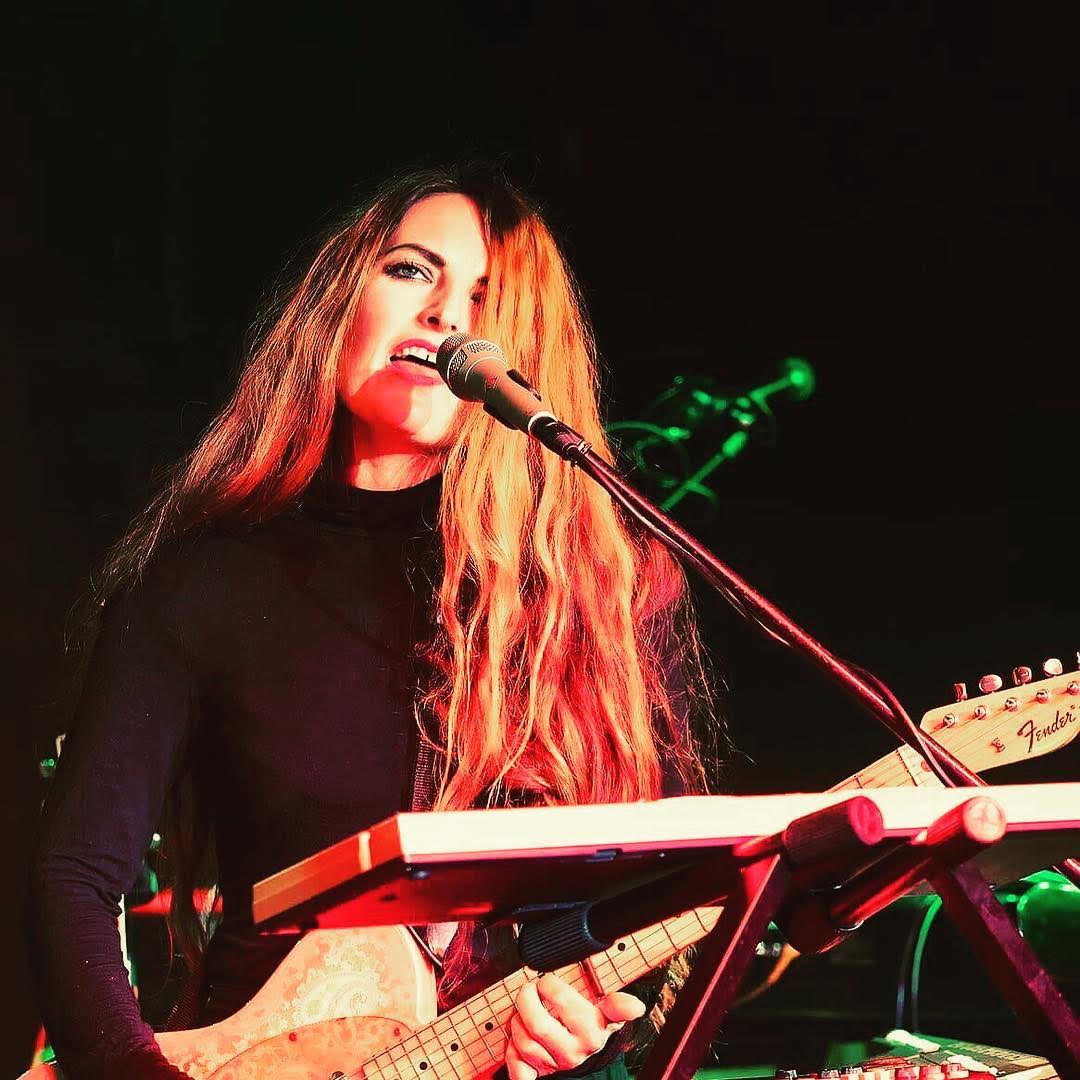
What artists are you proud to be associated to when people compare you?
C: Vocally I’m most often compared to Kate Bush, Bjork, Ellie Goulding and Delores O’Riordan but as a collective we are likened to bands such as Cocteau Twins, Portishead, Dead Can Dance, Kraftwerk and early Pink Floyd. I think one of my favourites lines was TBO is like what would happen if Kate Bush and Mike Oldfield joined forces. Even though we don’t base our sound on anyone else’s we can’t help but feel flattered by these comparisons.
R: I think comparisons are non-productive and I try to avoid them. But it’s not easy, they are the nearest things to musical adjectives we have available.
How did you meet and form a duo?
C: We actually met in a rehearsal room just outside of Manchester, I had just joined a new band whose drummer was also the roadie for Rick’s band at the time. Rick came along to a rehearsal and we’ve been best friends ever since, needless to say all the other bands fell away.
R: We had no intention of forming a band. We were miles apart in every way. I was in a heavy rock band, Chrissy was doing her own thing. It was an accident. But a good one.
You seem to have built up your following from touring – from the ground-up, rather than relying on airplay. Has that been a conscious approach you’ve made?
C: We absolutely love playing live, it’s where it all happens and it’s how we have grown and evolved to be the band we are today. Recently we were trying to work out how many shows we have played together and it’s well over a thousand which is pretty insane. As for airplay we would love more radio support but I guess the being hard to pigeonhole bit doesn’t help in that it’s harder to place us. That said, I think even if the BBC and other stations decide to get behind us we would still tour as much as possible, there’s something very magical about connecting to an audience, it’s almost like a drug.
R: I think since we started we haven’t had longer than a couple of weeks without a gig. But it feels like it is performing where we become fully us, so not performing would feel very alien and could even be harmful to our health, I don’t want to try it!
What was your first material like and how has your sound developed?
C: Our sound has developed massively, when we first started out it was basically two voices and one acoustic guitar, fast forward to now and we are surrounded by an array of instruments and a very different approach to using them. Although the change is huge it was never forced it just seemed to unfold very naturally and I think it’s still happening, who knows where we will end up, I love the freedom of it all.
R: Before I met Chrissy I’d never written a song in my life. I didn’t think I could, so for me it was very exciting when we started to write. Also I was just a guitar player, so exploring and using all our different instruments has been a great personal journey for me.
What music other than Mesmeranto are you most proud of and why?
C: I think I’m going to have to say all of it. For a while I couldn’t listen to the earlier stuff without cringing, which is crazy, I thinks it’s because we changed so much so quickly that our earlier works didn’t feel like me anymore, but having recently revisited them I can now see how each and every song is like a snapshot of our journey, of our lives really and they’ve all led to where we are right now and I feel incredibly proud and grateful for what we’ve achieved together so far.
R: Listening to your old albums is like looking at photos from when you were at school. It’s great to look back but did I really wear those trousers? Like Chrissy I’m proud of everything we’ve done and where we’ve been.
Your music videos are beautifully made. What process do you go through to get the right idea and see it through to the finished film?
C: Thank you. I think that anyone who has ever worked with us creatively would probably call us control freaks, and I don’t think we’d disagree. It is so important to us that whether it be a song, a video, a photograph or even a piece of merchandise that it fulfils our creative vision. We make everything much harder work for ourselves but it feels important that if it includes our name that our fingerprints are also on it. We both have strong visual ideas and are also involved with the shooting and editing of the videos, even to the extent of creating some of them totally by ourselves. Rick was also a creative director in his previous life which makes him even more of a nightmare to work with, ha!
R: No comment, but she’s probably right!
Given your unique sound, is it difficult to replicate it live or do you usually strip it back?
C: As most of the songs are created or completed during soundchecks the foundations of the sound are created with the palette of instruments that we have to hand and that to us is always the definitive version of the song. The songs often get played a number of times before they even reach the studio, then once in the studio we often experiment with new sounds and directions, but luckily so far the songs don’t seem to be lacking anything when played live.
R: The songs always start as live songs and then go into the studio and never vice-versa so we never have the problem of trying to replicate a studio-created song in a live environment. People say we have a big sound live and we’re very proud of that. These days it’s very easy to add elements to a live performance that aren’t really live and right from the start we made a conscious decision not to do that. Everything you hear is being played live and we work hard to do the best we can with just twenty fingers, even if that means each of us playing two instruments at the same time. It’s a challenge that we enjoy.
What are your plans for the next year?
C: We are heading out on a headline tour in February / March which is going to be announced shortly. Brexit permitting we plan on spending some more time over in Germany and Denmark. We have also already started writing again so I’m sure that we will find ourselves back in the studio before too long.
Mesmeranto is available from Cherry Red and all major physical and digital music outlets.
More information is also available from The Blackheart Orchestra website.
